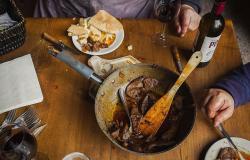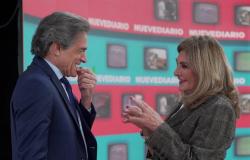The writer Jazmina Barrera spoke with SinEmbargo about her most recent book, in which she retraces the steps of Elena Garro. It is an intimate journey that she undertook over two years, six months and two days and that became a collection of biographical passages and critical notes about the great writer of the 20th century.
Mexico City, June 7 (However).– Elena Garro (1916-1998) “he was many, he lived many lives. “She was one for the people of her time, one for herself, another in her books, and another for those of us who observe her from today,” said the writer. Jazmina Barreraauthor of The queen of spades (Lumen), a text that covers the life of the Mexican novelist, playwright, screenwriter, journalist and writer through “the gaze of a portrait painter.”
“I was interested in this more literary artifact, where a relationship is proposed, the gaze of a portrait painter and the portrait of a woman, or several portraits of Elena Garro,” Barrera shared in an interview with However. “I wanted to establish that intergenerational dialogue, that rediscovery of his life, perhaps not so much based on the big events of his life, although they are there, but on small things, from different perspectives.”
Jazmina Barrera delved into how through the little things she discovered in Garro’s archives, in the notes, in her notebooks, in her doodles, lists, purchase receipts, she was able to learn more about her daily life, her personality outside of show business. .
“There you can build an intimate portrait, to a certain extent, because there are still many mysteries, there are many gaps, but to a certain extent we can access his personality, his lights and his darknesses, his virtues and his defects. For me it was important not to idealize her and not to present her as she had been for so long, as a crazy woman, a villain, but as a human being.
Barrera talked about the impact it had on him to understand where Elena Garro’s talent came from because, he explained, the number of books she wrote in all genres, with very different styles, is extraordinary. ”She was a very, very, versatile writer who continually reinvented herself and when you get to know her life, you realize that from a very young age she was exposed to fairy tales and a world of myths, legends, a different perspective, understanding time, memory, and since she was a child she was very close to art, theater, cinema and literature, I think there was a lot of fluidity between those media.”
“And writing, well she came to it almost as a work of art because she married Octavio Paz; Octavio Paz asked her to leave theater, dance, and cinema, and then she dedicated herself first to journalism and then to writing novels, plays, and short stories, but I believe that in any of those mediums she would have expressed everything she had. to express, a mind so restless, so fertile, because in any medium it was going to do fabulous things.”
Jazmina delved into how Elena Garro was to a certain extent “very rebellious and very free,” despite the fact that, she delved, “like many women of her time, she was trapped between these two worlds, the world of conservative conventions, of roles. of gender, of stereotypes.”
“Hers is a life where on the one hand she was the wife of the diplomat (Octavio Paz), the mother, and the hostess, and on the other hand she was a lover, traveler, writer and rebel. She was always a woman who said what she thought, who was consistent with her values, sometimes wrong, who was very brave in her approach to politics and social conflicts at a time when women were not allowed to do so. ”.
Barrera considered that the reception of his work has changed greatly in recent years: “for a long time, many of his books were unavailable and there has been a very important effort for some time now to republish his work with prologues by young authors. to update the context, to put her in dialogue with what is happening today, but there are still several of her books that are not available, and there are still many that are unpublished.”
“I think it has been said a lot that Elena Garro was one of the writers excluded from the boom. I believe that she no longer needs to be in that category, but that it is interesting to compare her work with that of Juan Rulfo, for example. I believe that there is a lot to say about a parallel reading between The Burning Plain and The week of colorsor put her into dialogue, for example, with García Márquez if we want to think about One hundred years of loneliness and Memories of the future; establish, for example, a genealogy of humorous writers in Mexico, see how a book like Memories of Spain, which is so fun with the literature, for example, of Ibargüengoitia; That is to say, there are many possibilities for including his books in all these traditions and I believe they would be very fruitful readings.”


Obed Rosas
He has a degree in Communication and Journalism from the FES Aragón of the UNAM. He also studied Hispanic Language and Literature at the Faculty of Philosophy and Letters.








